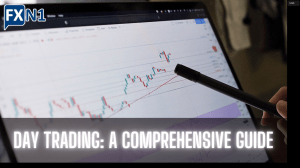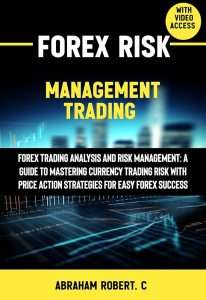Choosing the Right US Forex Broker: A Comprehensive Guide
Conquer the US forex market! This guide helps you choose the best forex broker, covering regulation, platforms, support, and more. Find your perfect trading partner today!
Navigating the world of forex trading can be daunting, especially for beginners․ Choosing the right broker is paramount to success․ This comprehensive guide will delve into the key factors to consider when selecting a forex broker, focusing specifically on those operating within the United States․ We’ll explore various aspects, including regulation, trading platforms, customer support, and more, to help you make an informed decision․
Understanding the US Forex Market
The US forex market is one of the largest and most liquid in the world․ It operates 24 hours a day, five days a week, offering traders ample opportunities․ However, this vast market also presents its challenges․ Understanding the regulatory landscape and the intricacies of trading in the US is crucial before you begin․
Regulatory Landscape: Navigating the NFA
The National Futures Association (NFA) is the primary regulatory body for forex brokers operating in the United States․ They oversee the activities of these brokers, ensuring compliance with regulations designed to protect investors․ Choosing a broker regulated by the NFA is a crucial step in mitigating risk․ This ensures a higher level of transparency and accountability․
Key Factors to Consider When Choosing a Broker
Selecting a suitable forex broker involves careful consideration of several critical factors․ These factors directly impact your trading experience, success, and overall satisfaction․ Let’s delve into the most important aspects you should evaluate․
Regulation and Licensing
As previously mentioned, NFA regulation is crucial․ Verify that your chosen broker is registered with the NFA and maintains a clean regulatory record․ This step significantly reduces the risk of encountering fraudulent or unreliable brokers․
Trading Platforms and Technology
The trading platform is your primary interface with the market․ Look for brokers offering user-friendly platforms with advanced charting tools, technical indicators, and order execution capabilities․ Consider platforms like MetaTrader 4 (MT4) and MetaTrader 5 (MT5), which are widely popular and offer robust functionality․ Assess the platform’s speed, reliability, and overall ease of use․
Spreads and Commissions
Spreads represent the difference between the bid and ask price of a currency pair․ Lower spreads translate to lower trading costs․ Commission structures vary among brokers; some charge commissions, while others incorporate them into the spread․ Compare spreads and commission structures across different brokers to find the most cost-effective option․
Account Types and Minimum Deposits
Forex brokers offer various account types catering to different trading styles and experience levels․ Consider the minimum deposit requirements, leverage offered, and the features included in each account type․ Choose an account that aligns with your trading goals and capital․
Customer Support and Education
Reliable customer support is vital, especially when dealing with technical issues or market uncertainties․ Evaluate the responsiveness and helpfulness of the broker’s customer support team through multiple channels, such as phone, email, and live chat․ Access to educational resources, like webinars and tutorials, is also a significant advantage for traders of all levels․
Available Assets and Instruments
Beyond currency pairs, consider whether the broker offers access to other asset classes, such as precious metals, indices, or commodities․ A diverse range of instruments provides more opportunities for diversification and strategic trading․
Top US Forex Brokers: A Closer Look
While providing specific broker recommendations falls outside the scope of unbiased advice, this section details the criteria to use for your own research․ Thorough research, comparing multiple brokers based on the above criteria, is paramount․ Remember that individual experiences vary․
Criteria for Selection: A Checklist
- NFA Regulation: Verify registration and regulatory history․
- Trading Platform: Assess usability, features, and reliability․
- Spreads and Commissions: Compare costs across different brokers․
- Account Types and Minimum Deposits: Consider your trading style and capital․
- Customer Support: Evaluate responsiveness and helpfulness․
- Educational Resources: Check the availability of tutorials and webinars․
- Available Assets: Consider the range of tradable instruments․
Understanding Leverage and Risk Management
Leverage amplifies both profits and losses․ While it can enhance returns, it also significantly increases risk․ Understand the implications of leverage before using it․ Proper risk management strategies, including stop-loss orders and position sizing, are crucial for protecting your capital․
Risk Management Strategies
- Stop-Loss Orders: Set stop-loss orders to limit potential losses․
- Position Sizing: Determine the appropriate amount to invest in each trade․
- Diversification: Spread your investments across different currency pairs․
- Regular Review: Monitor your trading performance and adjust strategies accordingly․
The Importance of Due Diligence
Before committing to any forex broker, conduct thorough due diligence․ Read reviews, compare offerings, and verify regulatory status․ Never invest more than you can afford to lose․ Forex trading involves inherent risks, and losses are possible․







